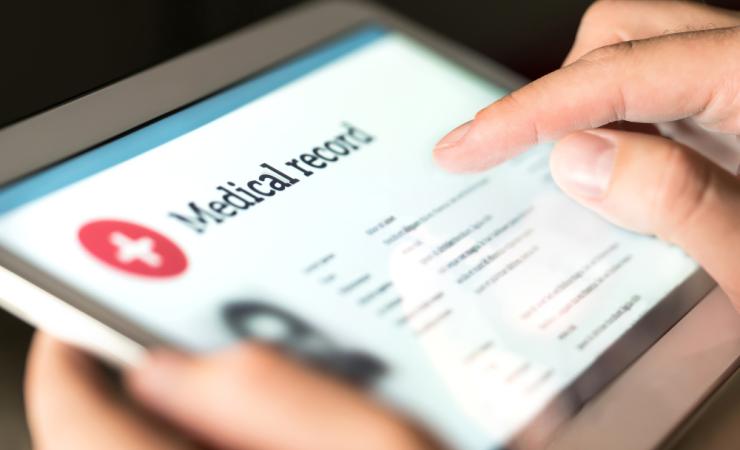Imagine that, as a patient, your medical information could help researchers to develop new ways to treat or even cure a disease. However, some of this information might end up with someone who can identify you from the data, or be used in research which you would prefer not to be involved in.
Until recently, patients offering their data to research had limited choice as to how it was used in research. Although patients can choose to sign consent forms to allow their health data to be used for research, there is often little interaction between patients and the researchers from that point onwards.
Striking a difficult balance
“It is a difficult balance to strike,” said Melpomeni Styliadou, the Vice-PresidentHealth Data Partnerships, Data Science Institute at Takeda R&D. “Asking patients to renew their consent every time there is a new research project can be burdensome and unnecessary. On the other hand, patients want to remain in control of their health data.”
Styliadou is co-leading the Innovative Medicines Initiative (IMI) funded H2O project, which aims to amplify the patient voice both in their own healthcare and in healthcare systems more broadly.
The project has recently developed a new way to formalise patients’ control over their health data through the newly-launched H2O Patient Agreement. Patients who sign on to this agreement join the H2O patient network, allowing them to measure both their own health outcomes and control how their data is used for research.
“We have an alternative way to think of how to manage health data in the world of digital health, economy and research,” said Styliadou.
This digitalisation extends to how patients control and manage their data. The H2O app allows signatories to record their self-reported outcomes (e.g. quality of life, effects of medication) for their own use, to compare them with aggregated data from anonymous patients in similar situations, or to share the information with their healthcare provider.
Patients can also ask H2O to combine their self-reported outcomes and electronic health records from healthcare facilities, and allow their anonymised data to be shared with approved research institutions.
“Hugely empowering for the patient”
“On the one hand, it's hugely empowering for the patient,” said Styliadou. “On the other hand, it's potentially hugely empowering for research.” She explains that the healthcare ecosystem often suffers from having pockets of data that are difficult to combine because each database requires patient approval. However, if patients trust the organisations who oversee the research, they can allow data to be combined. This can really fuel research in life science.
In the H2O patient network, patient data is anonymised and tracked. By making patients aware of when their data is used in research, they can choose to either opt out of the research via the app, or simply let the anonymous data be used. Even if one person opts out from their data being used, the wider database can still be shared, allowing researchers to use a larger range of anonymised medical data in their research.
Benefits for healthcare, for other patients, and themselves
“Patients will agree to share their data for research, if they see the benefit for healthcare, for other patients and for themselves”, said Tanja Stamm, professor of outcomes research at the Medical University of Vienna and public co-leader of the project.
The agreement comes almost three years into the project, during which the team had in-depth discussions with members of the H2O Patient Advisory Boards from all across Europe. These talks were vital when developing the agreement. The project has also set up ‘health outcomes observatories’ in Spain, the Netherlands, Austria and Germany to find how technology can both amplify patient voices and get new insights from data. A fifth observatory in Denmark is expected to launch soon.
“I think the patients are increasingly more enthusiastic about what we’re doing,” said Styliadou. “The more they see the type of work we’re doing, the more they realise the value that this can create, for them and for the healthcare system.”
The project is at the implementation phase for both the observatories and the patient agreement, though Styliadou says that she and the project partners view their goals in the long term.
“To me, success is to have all patients in Europe having the opportunity to be in control of their data, and monitor their outcomes in a way that allows them to have meaningful conversations with their healthcare providers,” she said. “When I see my mom and myself doing it, that is going to be – for me – a success.”
H2O is supported by the Innovative Medicines Initiative, a partnership between the European Union and the European pharmaceutical industry.
